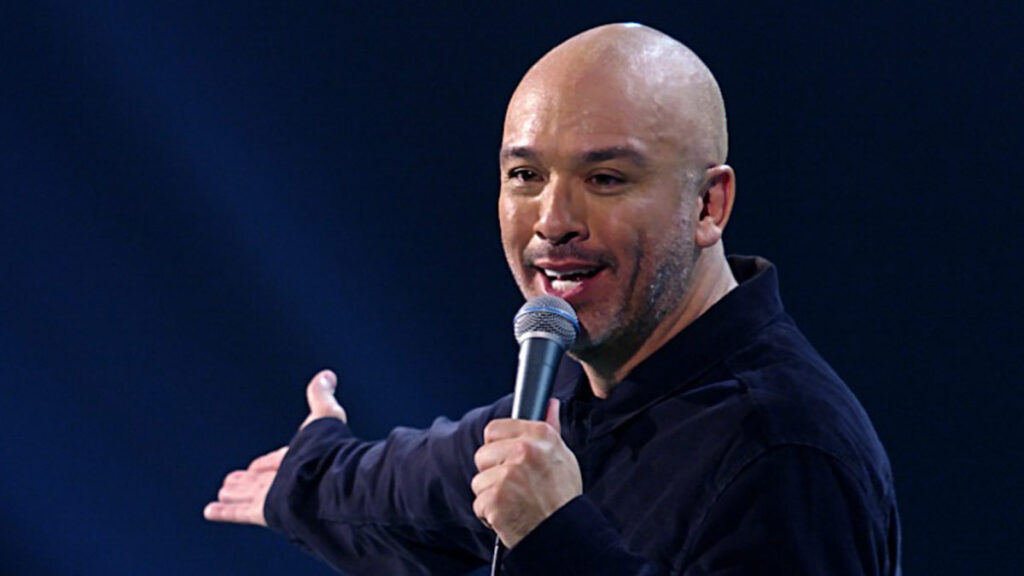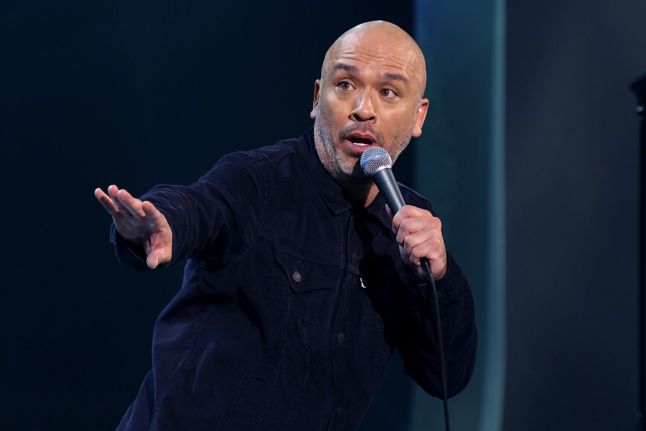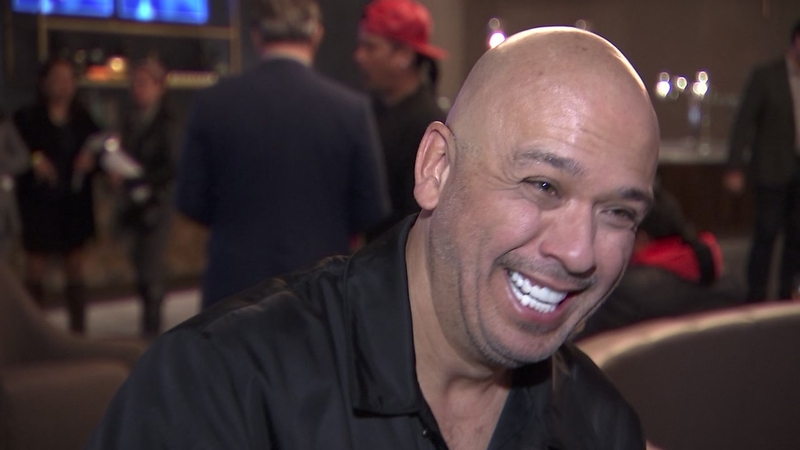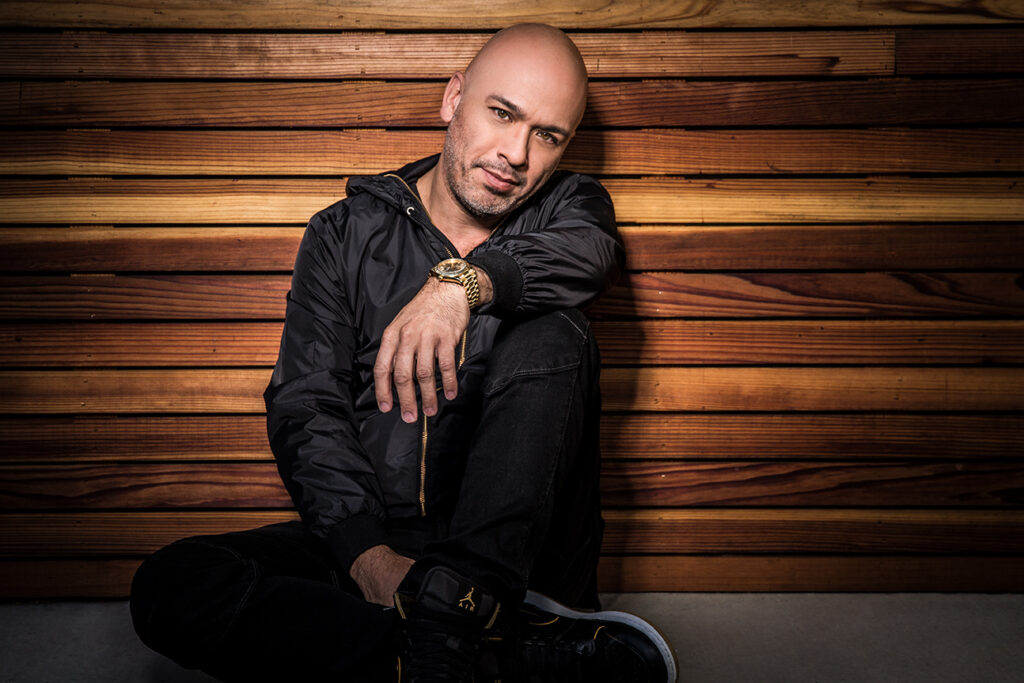Like many famous comedian, Jo Koy had also early challenges at hitting in comedy clubs. But, unlike them, the half white and half Filipino comedian could only seem be featured on ethnic theme nights like the “Wonton Wednesdays” and the“Asian Invasion.”
“There’s a lot of comics that had to do it. I’m not just saying Asians — Black people, Latinos, anyone that was ‘other’ had to do these themed shows. And it sucks,” Koy shared with extreme emotions.
Jo Koy also stated that segregating comics / comedians may sound inexplicable and offensive in today’s world, but that underlying racism “baked into” the comedy club circuit was indeed acceptable in the early 2000s. His journey in reaching his recent stature now, from being a Netflix darling and having a movie deal with Steven Spielberg, all of these are just some of the wonderful parts of of his career journey. Jo Koy, who is now 49 years old, shared all of these pertinent part of his life in his new memoir.

“Mixed Plate: Chronicles of an All-American Combo,” which will be introduced soon, is an ideal companion to Jo Koy’s stand-up with its humorous, and at times painful, origin stories behind some of his most popular bits. The book reflects how Jo Koy’s mixed-race background had ultimately directed his brand of comedy. Not only that, it also shows his determination and not giving up on his childhood dream.
“I’m not trying to pat myself on the back. It is indeed a long road,” Jo Koy said. “And when I finally got to this point in my career, I looked at my manager and said, ‘Man, I would really like to tell people, you know, this struggle, and how hard it was to really get here.’”
With the help of his writing partner, Jo Koy, or Joseph Glenn Herbert, revealed how he struggled by being a mixed-race identity child as he grows up in Tacoma, Washington. He did not shy away from deeply personal topics, including an account about an older brother who has a violent schizophrenia and his father who left when he was only 12 years old. The book also discussed how the reconciliation had happened.
“I’ve always been open in letting people be inside my life,” Jo Koy said. “So, when I said I am going to write a book, of course I’m going to tell them everything. Or else, you’re not going to be aware of the real story of how I got there.”

“I’ve always been open in letting people be inside my life,” Jo Koy said. “So, when I said I am going to write a book, of course I’m going to tell them everything. Or else, you’re not going to be aware of the real story of how I got there.”
Jo Koy, who always have sold out stadium shows, has desired to make people laugh since age 11. He didn’t “speak school”, and he was never attentive in conventional pursuits like college. For him, earning $5 as does stand-up comedy on an open mic in a coffeehouse was more thrilling and exciting. In 1990s, he followed his mother and stepfather to Las Vegas, and there, he started joining comedy contests in small clubs there. In 2001, he had decided to make the big move to Los Angeles.
But amidst of all these opportunities he had, the reality of segregation is still there. The comedy club circuit wasn’t exactly open to his bi-racial looks.

“You come to Hollywood, and they have no idea what they’re looking at — as horrible as it may sounds,” Jo Koy said. “They would ask, ‘What’s your story? We don’t get it. Where can we put you?’”
Jo Koy took whatever gigs at clubs that will be offered to him, like “The Improv” and the “Laugh Factory”, accepting opportunities, even in the ethnic “theme nights.” As all of these are happening, he juggled as many as three part-time jobs. By 2003, he also had factored in having his family and his newborn son.
In this book, he recounted performing at the Laugh Factory while, Tiffany Haddish, his partner, would be off to the side, watching his son.
“We had that little bond of ours, and you know, that we both had seen struggle,” Jo Koy said. “I love Tiffany. She was there during that process. And the wonderful thing is, she still is in my life to this day, which is even more amazing.”

Watching his toddler son playing with his mother, it hit Jo Koy that family life could be really a funny fodder. As he mimicks his mother’s accent and mannerisms, which is now a classic for Jo Koy, he initially hesitated for fear of being labeled as “the Filipino comic.” But then, he saw that all audiences seemed to find anecdotes involving his mother relatable and hilariously funny.
“That’s when I knew, and I was like, ‘Oh, I got something good here. I know how to do it now,’” Jo Koy also expressed.
His Filipino roots shine brightly in the book. Jo Koy may be the first comic with a memoir that includes recipes. There are instructions on how to make Filipino popular dishes like lumpia and chicken adobo. He rallies to be “an ambassador for Filipino food” and culture.
With three Netflix comedy specials under his name for the last four years, including the one that had filmed in Manila, Jo Koy shared people often think that it is the streaming service that had discovered him. But like the other times in his life, he was also rejected by them for their 2017 comedy slate.
Determined to give them a reason to say yes, Jo Koy had put on his own special. He booked a theater in Seattle, and he paid for a high-quality crew to film it. Then, to his amazement, the final product was enough to get an offer from Netflix.

Since then, Koy has built his name as one of the household comedians. With plenty of on-screen experience, including being a panelist for Chelsea Handler’s old E! talk show, “Chelsea Lately,” Jo Koy paved his way and almost one sitcom or film away from the next level of his stardom.
One of his Netflix specials got Steven Spielberg’s attention. His production company, the Amblin Entertainment, is now producing a starring vehicle for Jo Koy, “Easter Sunday.” This is based on Jo Koy’s personal experiences. The movie comedy follows a family gathering on holiday.
Even with all of these opportunities, Jo Koy’s mother still sometimes asks him if he is willing to drop stand-up comedy for a regular job that has benefits.
“I don’t think about retiring. I’m going to die on that stage,” Jo Koy confidently said. “That is really hard to explain to an immigrant parent because they don’t understand that. But you know what? We’re all enjoying this.” Jo Koy had said as he closed the interview.






